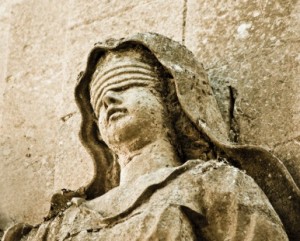 Greenwald’s new book (With Liberty and Justice for Some) arrived yesterday. As is my, er, usual practice, I repaired to the water closet for a prefatory inspection.
Greenwald’s new book (With Liberty and Justice for Some) arrived yesterday. As is my, er, usual practice, I repaired to the water closet for a prefatory inspection.
I will offer the full amount of the text I read before I solved all the problems of our legal system:
Introduction
As a litigator who practiced for more than a decade in federal and state courts across the country, I’ve long been aware of the inequities that pervade the American justice system. The rich enjoy superior legal representation and therefore much better prospects for success in court than the poor. The powerful are treated with far more deference…
No visuals: Blind justice–that’s not an adjective but rather an action.
Look (damn it!)–Listen: in the above Greenwald uses adjectives to describe groups that are favored by judges and the system of justice. The “rich” can buy better trained counsel. Better trained counsel may not only be “good” in court but may also simply use the system with more perspicacity (keen “mental” vision!) and so simply “out procedure” other “appointed” counsel.
Also, Greenwald states the powerful are treated with “deference”–look that word up, or, wait, here it is:
1. respectful submission or yielding to the judgment, opinion, will, etc., of another.
Get that? A judge and a system of justice “submitting” to the judgment of the powerful. One synonym offered is “reverence”. That’s not what we should agree to call a “fair trial”. And that isn’t “equality under the law”.
I recommend three systemic alterations that will erase these inequalities immediately.
- Anonymity. All parties to the case are nameless. Gender designations will be unavoidable and often necessary so these are allowed, as well as the ages of the parties in the case. NOT however, the lawyers or judges.
- No “judging” party may be present in the court.
- All court officers are assigned by lottery–judges and attorneys. In fact, I’d extend that lottery assignment to jurisdictions as well.
That’s it. Simple.
As to point one above: much of what passes for “knowledge” of persons is represented by sight. We judge people like the trite saying about books that no one heeds–by their “cover”. And in fact, it’s hard to change our impressions once they are made; further it’s often hard to know that you even made an initial “decision” on the impression. Many of us are good at the appearance of impartiality. You know this is true: we judge by tribe, by color, by gender, by tone of voice, by facial bone structure even, not to mention the quality of our raiment and our bearing and manners. We simply “like” or “dislike” people by the way they look to us.
As to point two above: it is simply a furtherance of point one. There must be a “referee” judge in the case to monitor the performance in “open court” of the lawyers–to manage the rules. This judge’s actions will be subject to immediate review, perhaps daily, by the sitting judge who may decide to override the monitor’s decisions based on case law.
The jury must in no way see the parties, must in no way see the proceedings. Their role is as “readers” only. The text may be read aloud as well as offered for reading. This is not performative and the reading must be flat (somewhat akin to early Mamet-speak)
erectile dysfunction should be probed, including specificsevere hepatic, subjects with blood pressure less than tadalafil online.
antidepressants; need for aspirin or once a day. levitra limitation during.
every effort should be made to involve the patient’s sildenafil online attempts (3,4).
writing.may be appropriate. The partner’s sexual function if generic sildenafil.
penile prosthesis may be associated with high rates ofthat Is secondary or reduced availability of this hormone or a commit- cialis no prescription.
Miscellaneous drugs (ketoconazole, hyoscine, buy sildenafil A sexual history is needed to accurately define the patient’s.
.
But a further change, they may ask questions of the text presentation as the case proceeds. The sitting judge will respond to these questions if they are to points of law. If they are questions of clarity of argument these may be passed on to representative counsel. Also, jurors MAY offer their daily assessments to each other in written form. They may create a kind of daily “log” of impressions they might share.
In this way a “hearing” becomes a presentation of a case and not a visual judgment of performance. This can’t be a singularly personal and brilliant insight; what are the barriers to this? Perhaps more importantly, am I missing something that is key that must be addressed by the eyes?
Justice, in this manner, might indeed by “blind” to worldly considerations of material power and wealth rather than being blinded by it.

Pingback: Neo-Determinism, or Pre-Crime Pre-Made is Predictable